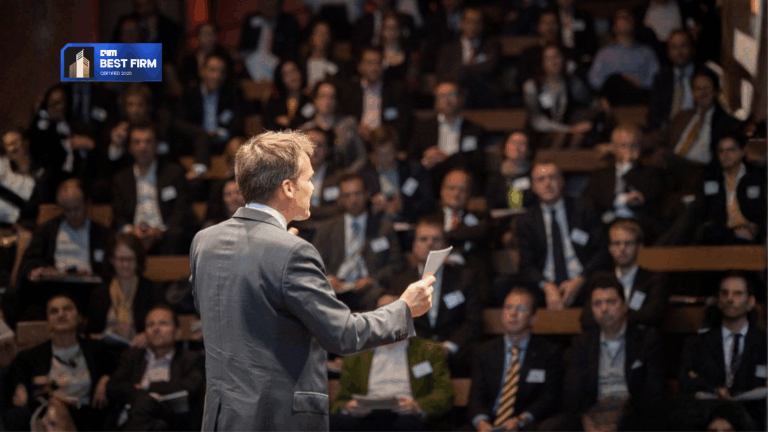The global demand for data talent has reached a level where reputation alone no longer convinces professionals to join or stay with a company. Organizations put effort into rankings, awards, and visibility campaigns yet data scientists, analysts, and AI specialists increasingly look beyond image. They want proof that their work will be valued, their growth supported, and their workplace culture aligned with their goals.
The gap between how companies present themselves and what employees actually experience is now the biggest risk to credibility. Data professionals do not settle for surface-level recognition. They seek evidence of culture and capability. That is why the conversation has shifted from popularity to proof.
The Growing Demand for Data Talent
The U.S. Bureau of Labor Statistics projects 36% growth in data science employment between 2023 and 2033, creating about 20,800 job openings annually during that period. The median wage for data scientists has crossed $112,000 per year. This demand shows no signs of slowing as industries adopt AI, expand digital operations, and prioritize data-driven decision-making.
But even with opportunities available, retaining top professionals is harder than ever. A McKinsey analysis noted that 77% of organizations lack the required data talent to meet business needs, and only 12% have structured programs to build and retain it. The shortage is about the alignment of skills, culture, and opportunity.
What Data Talent Values Most
Surveys of analytics professionals have repeatedly shown that salary is not the only driver of job satisfaction. A study by Burtch Works found that growth opportunities, interesting work, access to modern tools, flexibility, and company culture all rank alongside compensation as the top reasons people stay in their roles.
In other words, data professionals want:
- Capability development – clear pathways to expand their expertise.
- Cultural strength – inclusive, transparent, and collaborative workplaces.
- Credibility signals – evidence that employers take these commitments seriously.
This is where the intersection of culture and capability becomes essential. Without one, the other does not hold up. A supportive culture without real learning opportunities leads to stagnation. Capability programs without a healthy culture fail to retain talent.
Why Rankings Fall Short
Many companies highlight rankings such as “Top Employer” or “Best Place to Work.” These recognitions generate attention, but they often reflect perception more than performance. Rankings are based on editorial opinions, changing methodologies, or selective surveys. They show who is popular, not necessarily who delivers substance.
For data professionals who prize evidence, rankings are a weak signal. They indicate visibility but do not demonstrate the actual strength of workplace culture or capability-building systems. In today’s competitive environment, visibility without proof does not inspire trust.
Certification as a Stronger Signal
This is where certifications create a stronger impact. Certifications are based on standardized processes, external validation, and clear evidence. They measure real policies, initiatives, and employee experience. Instead of applause, they provide proof.
The Best Firms certification by AIM Research is designed for this purpose. It evaluates organizations on both culture and capability for analytics and data science teams. The process includes:
- Independent surveys of data professionals to capture their workplace experiences.
- Assessment of policies and programs for training, mentorship, diversity, and inclusivity.
- Benchmarking against industry peers to identify gaps and highlight strengths.
Unlike rankings, this certification produces actionable insights. It allows organizations attract top talent as well as improve the culture and systems that keep them.
Why Certification Resonates With Data Professionals
Data professionals spend their careers interpreting evidence. It is natural that they apply the same mindset when choosing employers. They prefer signals that are measurable, structured, and validated.
- For job seekers, certification indicates that a company invests in career growth, workplace inclusivity, and meaningful culture.
- For current employees, it reassures them that their experience matters and is being measured.
- For employers, it strengthens credibility in hiring markets where skilled professionals have abundant options.
This balance of culture and capability becomes a trust anchor. Professionals want to know that promises are backed by systems, not just by branding.
The Cost of Ignoring Culture × Capability
The cost of neglecting culture and capability is significant. A report by ITPro says rising demand has already driven salaries for AI and advanced analytics professionals beyond $100,000, with some roles exceeding $200,000 annually in 2025. If organizations pay high salaries but fail to provide growth opportunities or healthy cultures, retention drops. Professionals simply move to firms that combine competitive pay with credible culture.
The lesson is clear: money attracts, but culture and capability retain.
Building for the Future
The demand for data talent will not slow. AI adoption, regulatory requirements, and digital transformation will keep raising the bar. The firms that succeed will be those that treat culture and capability as strategic assets.
Certification provides the proof point needed to build trust in this environment. It signals to employees that they will be supported, to clients that capability is real, and to the market that the firm is credible.
Conclusion
Data professionals today care about more than salary or branding. They seek structured growth, inclusive culture, and signals of credibility that go beyond surface recognition. Rankings provide attention but not trust. Certifications such as Best Firms provide proof.
By focusing on culture × capability, organizations can align with what today’s talent actually values. They can build environments where data professionals want to grow, innovate, and stay.










